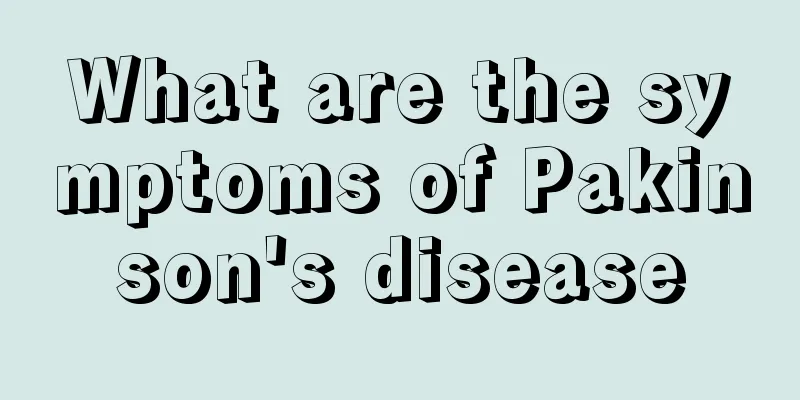What does high blood lipids mean and what should we pay attention to?

|
The temperature gradually drops in winter, the human body's metabolism slows down, and the bodies of patients with cardiovascular and cerebrovascular diseases are stimulated by the cold air, causing their blood vessels to contract suddenly, which can easily lead to blood vessel blockage, interruption of blood supply, and obstruction of blood circulation, making it difficult for toxic substances in the blood vessels to be discharged, thereby inducing the onset and recurrence of cardiovascular and cerebrovascular diseases. Hyperlipidemia is also a type of cardiovascular and cerebrovascular disease. What specific diseases does hyperlipidemia refer to? What symptoms and harms will it cause? Hyperlipidemia is divided into primary and secondary types. The former is related to the environment and family genetics. The latter is caused by diabetes, hypothyroidism, obesity, pancreatic disease, etc. A reasonable diet and lifestyle are important in preventing hyperlipidemia. For patients with a genetic tendency to hyperlipidemia, drug treatment has no obvious improvement. The main way to improve the condition is to adjust the dietary structure. Try not to eat or eat less foods high in cholesterol, such as animal offal, brain, bone marrow, fish roe, shellfish, squid, eel, etc. Eat high-fiber vegetables, fruits and melons regularly. They contain large amounts of plant sterols which can inhibit cholesterol absorption and play an anti-atherosclerotic role. Drinking moderate or small amounts of alcohol can also lower cholesterol, 45 ml of white wine, 90 ml of dry red wine, or 188 ml of beer per day. For patients who already have hyperlipidemia, on the one hand they should control their diet, and on the other hand they should do moderate exercise such as jogging. Through exercise, the lipase activity in the fat increases and blood lipids decrease accordingly. Some patients have normal blood lipids but have hypertension, diabetes, and coronary heart disease. They also need to control their diet, actively exercise, and cooperate with drug treatment under the guidance of a doctor. The causes of hyperlipidemia can basically be divided into two categories, namely primary hyperlipidemia and secondary hyperlipidemia. Primary hyperlipidemia ⒈ Genetic factors: Heredity can cause hyperlipidemia through a variety of mechanisms, some of which may occur at the cellular level, mainly manifested as defects in cell surface lipoprotein receptors and defects in certain enzymes in cells (such as defects or lack of lipoprotein lipase). They may also occur in lipoprotein or apolipoprotein molecules, and are mostly caused by gene defects. ⒉ Dietary factors The examination of the effects of dietary factors is always complicated. A considerable proportion of hospitalized patients with hyperlipoproteinemia is closely related to dietary factors. Secondary hyperlipidemia is caused by other intermediate primary diseases, including: diabetes, liver disease, thyroid disease, kidney disease, pancreas, obesity, glycogen storage disease, gout, Addison's disease, Cushing's syndrome, abnormal globulinemia, etc. ⒈ Diabetes and hyperlipoproteinemia There is a close connection between sugar metabolism and fat metabolism in the human body. However, clinical studies have found that about 40% of diabetic patients may develop hyperlipidemia. ⒉ Liver disease and hyperlipoproteinemia Modern medical research data have confirmed that many substances including lipids and lipoproteins are processed, produced, decomposed and excreted in the liver. Once the liver is diseased, lipid and lipoprotein metabolism will inevitably become disordered. ⒊ Obesity and hyperlipoproteinemia Local clinical medical research data show that obesity most often causes increased blood triglyceride levels. In some patients, blood cholesterol levels may also increase, with most of them mainly manifesting as type IV hyperlipoproteinemia, followed by type IIB hyperlipoproteinemia. Hyperlipidemia often occurs in middle-aged and elderly people, so the elderly need a healthy diet and effective exercise. The elderly are physically weaker, so they need to pay more attention to their daily diet. They can eat some nourishing ingredients, but not overdo it. It is important to exercise regularly and maintain a healthy and strong body. |
<<: Is it good to drink milk after lunch?
>>: What should I pay attention to when it comes to HGB?
Recommend
What's wrong with peeling feet
What is the reason for peeling feet? I believe ma...
What are the symptoms of spring bamboo shoot poisoning
Spring bamboo shoots taste very crisp and refresh...
Which conditioner is better to use after dyeing hair?
For the sake of beauty, many people often dye the...
What type of cold is runny nose?
Many people will experience runny nose, sneezing,...
Will a father's lung cancer be passed on to his daughter?
Lung cancer itself is not a directly inherited di...
What are the dangers of low basal metabolism
If the basal metabolic rate is low, the human bod...
Early manifestations of rectal cancer in women
Rectal cancer is a serious health-threatening dis...
What are the specific symptoms of advanced cardiac cancer
Cardiac cancer is the most common disease among m...
What causes cholangiocarcinoma? Pay attention to these aspects
Cholangiocarcinoma is a type of primary liver can...
Several common early symptoms of cardia cancer
I believe that many people have heard of the dise...
Can pelvic mass cause ovarian cancer?
Pelvic masses do not necessarily cause ovarian ca...
Should I wash my face after applying the mask
Most women’s skin care products should include fa...
Treatment of ovarian cancer
Ovarian cancer brings a lot of harm to our lives....
What are the methods for marinating tenderloin?
Pork tenderloin can be made into a variety of del...
Is rust inhibitor harmful to human body?
Rust inhibitors are not only frequently used in i...









